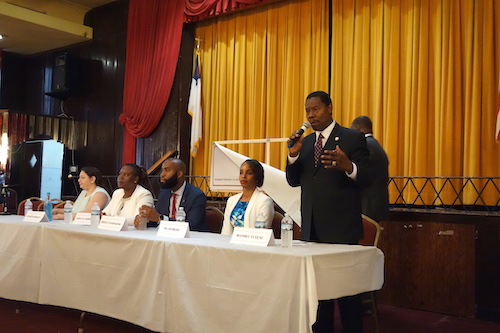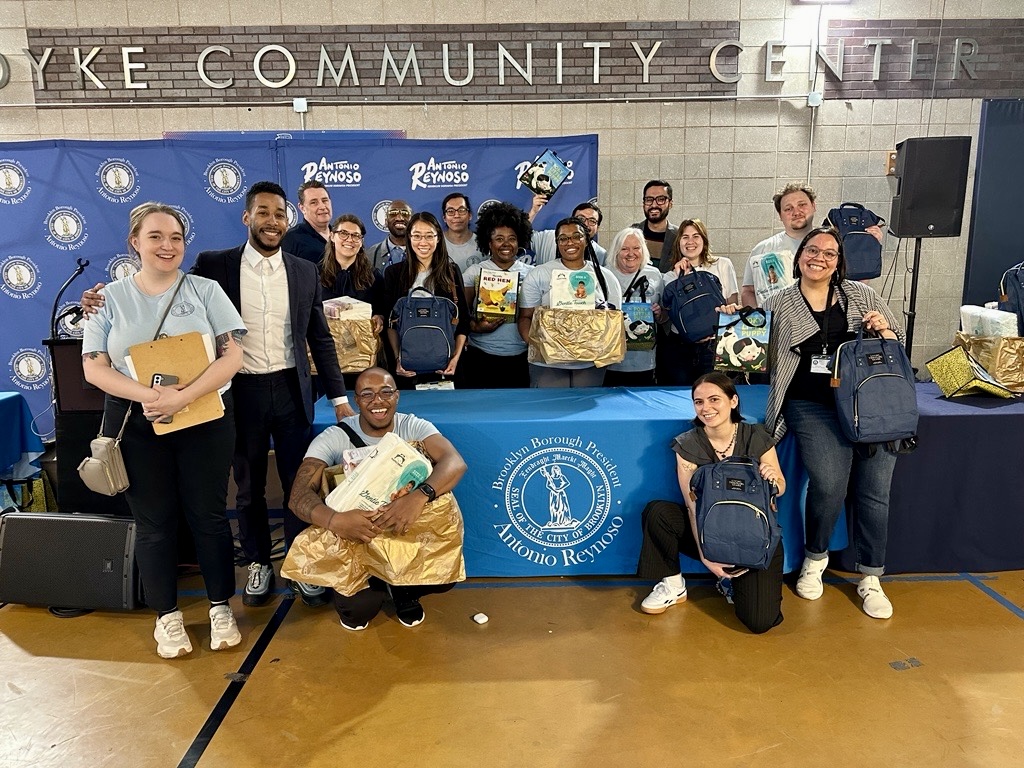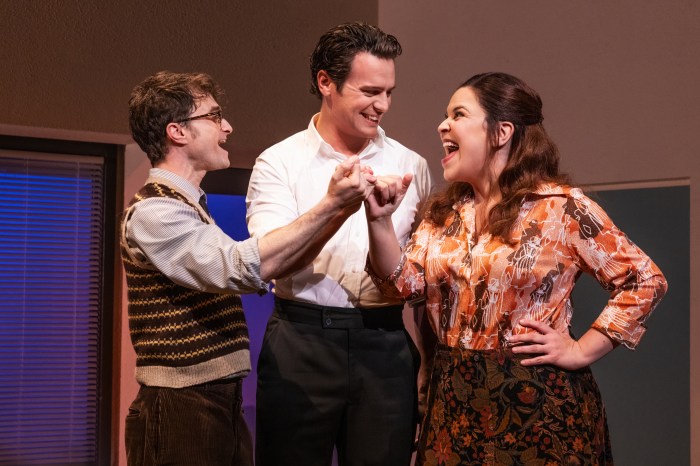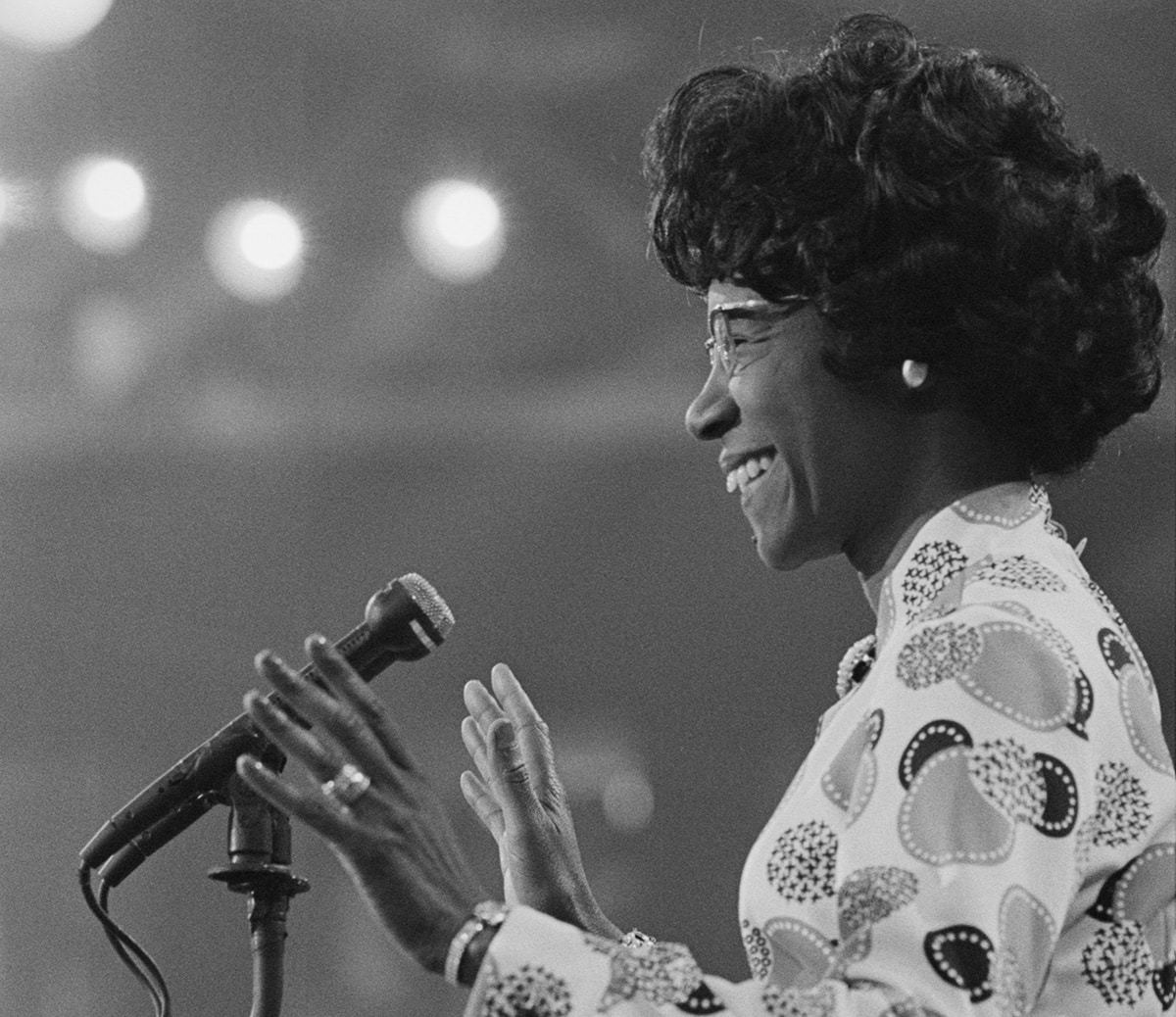The issue of affordable Housing took center stage last night for candidates vying in both the 40th and 45th district City council race during the Shirley Chisholm Democratic Club’s multi-leveled political forum that also included judicial and district attorney candidates.

The club’s founders, Assemblywoman and Female Democratic District Leader Rodneyse Bichotte and and Male Democratic District Leader Josue (Josh) Pierre moderated the event, which kicked off with 45th District incumbent City Council Member Jumaane D. Williams (D-Flatbush, East Flatbush, Flatlands, Midwood, and Canarsie) facing off against challenger Louis A. Cespedes on the issue.
Cespedes began by asking the crowd if they were happy with the “services” provided to their community. Many audience members called back “very happy!” He asked if they were happy with their transportation options. Another resounding yes. But when Cespedes asked the audience if they had access to affordable housing, the answer was simple: “absolutely not.”
The audience response was not without merit as in recent years, communities across New York City have experienced demographic change and high turnover rates, with longtime residents struggling to pay rents.
According to the NYC Housing Department, over the last 20 years, wages have increased by less than 15 percent (adjusting for inflation), while monthly rents have increased by nearly 40 percent.
From 2000 to 2012, Brooklyn’s average monthly rents rose by 77 percent, according to a 2014 Bureau of Fiscal and Budget Studies report. District 45 neighborhoods were all listed in the report as areas hit especially hard by rising rents and housing issues.
Cespedes argued for rezoning, new models for home ownership that make the market “more accessible for people who make less than six figures,” and legislation to allow conversion of basements and cellars into legal dwelling units.
“Most of the people who are coming into the homeless system are living in basement apartments and are being evicted from their homes,” he added.
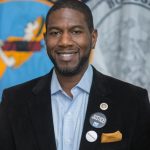
Williams questioned Cespedes several times about what he would have done differently as City Council member. Cespedes referenced the Mandatory Inclusionary Housing (MIH) proposal, which mandates developers to allow for affordable housing in rezoned areas, and Zoning for Quality and Affordability (ZQA) which focused on the development of affordable housing and affordable senior housing. Cespedes argued that Williams had been against these proposals, as well as efforts to legalize basement conversion.
Williams responded that he had, in fact voted “one hundred percent” for the ZQA, and that he had voted against MIH because it “did not go far enough.”
“We have to have deep affordability in every single MIH pocket across the city or we’ll continue the segregation that goes on in this city,” said Williams. “We did not get that, so I stood up to the mayor and I voted no on MIH. He added that though he did not share Cespedes’s views on zoning, he agreed with him when it came to basement apartments and had worked on projects to legalize them.
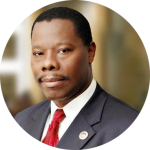
District 40, which includes Southern Crown Heights, Lefferts Gardens, Flatbush, East Flatbush and Ditmas Park, featured Incumbent City Council Member Mathieu Eugene against challengers Brian Cunningham, Pia Raymond, Jennifer Berkley and Rose St. Albord. All agreed the most important issue facing the community was “housing, housing, housing.”
Raymond answered first, noting that many local residents, including seniors and children, in the area are currently experiencing displacement. She said that efforts should be made to hold landlords accountable and educate constituents on their rights.
She argued that most importantly, funding should go to nonprofits and legal association, “So that every person that might need to go to housing court is able to have legal representation in a way that makes them competitive in the courtroom.”
Cunningham followed, stating, “I’m running at this time because I know the district that I grew up in, and that district is changing.”
He emphasized the importance of the housing issue as well, referencing a plan to use non-profit rather than for-profit developers, creating “more housing stock with deeper affordability.” He also argued for cutting state subsidies to developers, adding that they result in low affordability.
St. Albord agreed with Raymond and Cunningham that housing was a crucial issue, but warned against breaking subsidies. She argued that low-income families depend on certain subsidies, as landlords are given the incentive to let them stay in their apartments.
“There’s a median number where developers can pay a living wage to union workers and still be able to provide affordable housing for people in the constituency,” said St. Albord. “And that’s what we need.”
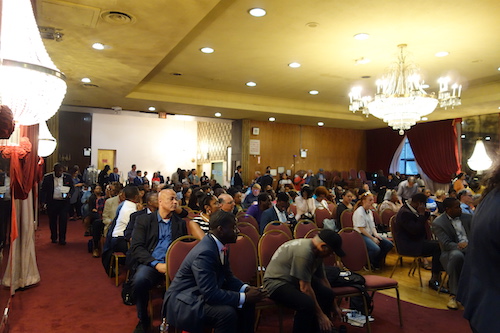
Berkley cited what she called a significant decrease in rent stabilized housing in the area and added, “the problem starts before people get to housing court.” She suggested providing greater support for tenant organizing groups like the Flatbush Tenant Coalition, and emphasized the importance of cooperation among neighbors and tenants.
“I entered the race because I did not think that any of the people running, including the incumbent, were strong enough on housing,” said Berkley. “If we don’t have a place to live here in the city, all other bets are off.”
Eugene began by calling housing “the biggest crisis in New York City,” and underlining the importance of helping constituents keep their apartments and homes despite abuses by landlords.
He argued that he had been working to address the issue for years, citing funding for the Flatbush Tenant Coalition, as well as New York Legal Assistance Group (NYLAG) and Brooklyn Defender Services. He also argued that he had created affordable housing in the district and that some rents in the area were as low as two hundred and fifty dollars a month.
The event was held up the carpeted stairs of the Salem Missionary Baptist Church on East 21st Street. Audience members filled the seats, sneaking off occasionally to grab a plate of chicken stew or rice and peas.
A poster-portrait of the late trailblazing Brooklyn Congresswoman Shirley Chisholm looked on from the podium as candidates from varying corners of Brooklyn sat down to debate their opponents.


